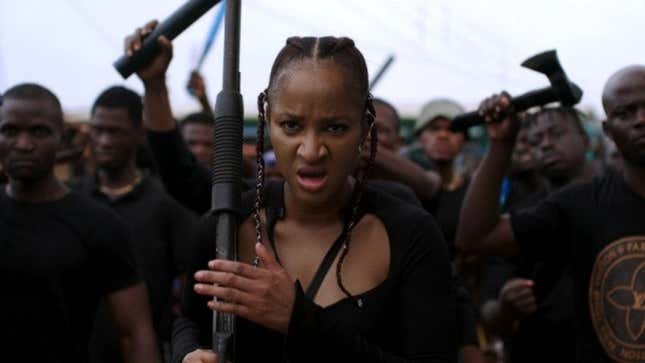
Fresh off the news that Netflix is investing in Africa, Prime Video is announcing its own expansion into Nigeria.
According to Deadline, Prime Video revealed two new originals from the country and will now allow subscribers to sign up with local currency, the Naira, a first for the streaming service. Users will pay 2,300NGN per month, which is $5.50.
Gangs of Lagos follows “a group of friends who each have to navigate destiny, growing up on the bustling streets and neighborhood of Isale Eko, Lagos.” The ”high-stakes, gritty, and hard-hitting action crime-thriller” with “an emotionally grounded story” is produced and directed by Jade Osiberu and stars Tobi Bakre, Adesua Etomi-Wellington and Chiké. It premieres later this year.
“From local payment and a full-scale local marketing campaign, to more local content specifically for Nigerian customers, our investment in Nigeria is a significant step towards our broader expansion plans in Africa and our ambition to be the most local of global streaming services,” said Josh McIvor, Director of International Expansion, Prime Video.
The streamer is also spinning off one of its global hits into Nigeria, with LOL: Last One Laughing Naija. Comedian Basketmouth hosts the competition series, which features 10 famous local comedians trying to make one another laugh. The winner gets 40MM Naira donated to their charity. The latest version of the show will debut next year.
As cool as it is to see these entertainment giants investing in Africa, it’s taken them way too long to realize that the continent’s art is just as relatable and marketable as all the other countries they love to promote.
Just think about all the French, Mexican, Japanese and Korean movies and series you can find on Netflix and Prime Video. Comparatively, there are much fewer African projects.
Now that these companies are recognizing the value of African content, let’s be vigilant and hope this doesn’t lead to the exploitation of African artists and creators.

